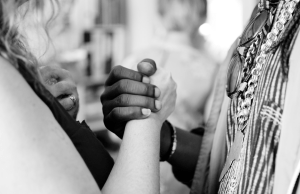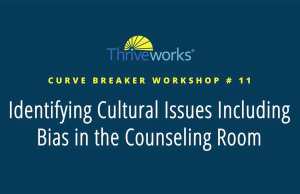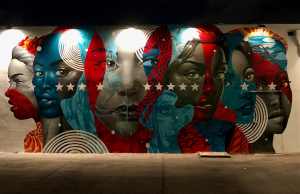You can meet with one of our caring mental health professionals, including this presenter, by visiting us at https://thriveworks-develop.go-vip.net/online-counseling/
Hi, my name is Tori Mills and I am a Licensed Clinical Professional Counselor for Thriveworks. I’d like to discuss the effects that discrimination has on one’s mental health.
So, during this time of intense racial dissonance in America, it’s important to look at the effects that racial discrimination can have on one’s mental health, regardless of their socioeconomic status. In general, people pursue therapy for things such as helping them deal with daily stressors, manage symptoms, sometimes deal with an unexpected event such as an accident, death, loss, or even a pandemic. So adding discrimination on top of those things can have a very overwhelming impact.
Seeing discrimination, hearing about discrimination and/or experiencing discrimination can have lasting effects. There’s a level of systemic gaslighting that occurs in racial inequity because it’s not only that actually racial discrimination is occurring, but it often goes unacknowledged, minimized, or simply denied or dismissed. This can invalidate the history and the reality in which people of color have experienced throughout time.
So, people of color experience, different emotions, side effects, and symptoms as a result of discrimination. Some of these may be sadness, depression, low self-esteem, hypervigilance, confusion, hopelessness, helplessness, disappointment, frustration, anguish, anxiety, trauma, hurt, despair, rejection, withdrawal or isolation, passivity, aggression, feeling unsupported, feeling unsafe, limited expectations, mistrust, paranoia, and invalidation. And that’s just to name some.
The aftereffect of these things can also cause physiological symptoms. Examples might be fatigue, loss of energy, physical pain, digestive issues, migraines, insomnia, increased heart rate, trembling or shaking, muscle tension, difficulty breathing. Sometimes, physiological symptoms can then lead to disease. So, discrimination has a huge impact.
It can also have lasting effects on a person’s social experience or their ability to function socially. That might look like withdrawal from activities, isolation, social discomfort, paranoia, hypervigilance, the need to leave. There’s currently an intense fear for safety. It’s not just a fear for oneself, but fear for loved ones. Fear for the community. Fear for our race.
Support and compassion are imperative at this time. And it doesn’t just have to come from a mental health provider. It can come from you. Thanks for listening.













